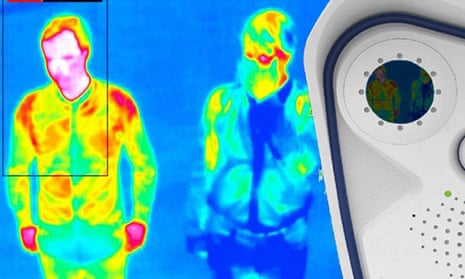Aviation bosses have torn into Boris Johnson’s plan to impose a 14-day quarantine on people arriving in Britain, warning that it risks worsening the economic impact of Covid-19.
In a letter signed by the chief executives of easyJet, Heathrow and Gatwick, the industry voiced “collective and serious concern and frustration” and demanded a meeting with the prime minister.
It questioned the scientific basis of the quarantine plan, cast doubt on whether it could be enforced and said industry representatives had not been consulted on the proposals before they were announced.
“An open-ended quarantine, with no set end date, will make an already critical situation for UK aviation, and all the businesses we support, even worse,” the bosses wrote.
“People will simply choose not to travel to and from the UK, at the same time as economies in Europe and around the world begin opening up their borders and removing their own quarantines, making the UK aviation sector unable to compete.”
“In short, passenger travel cannot restart, and clarity from government is needed as to whether such an outcome is the intention or expectation of this measure, which was announced without any pre-consultation with the sector.”
The letter was sent on Monday after the government published a 50-page document outlining its Covid-19 recovery strategy.
The plans include a 14-day quarantine on new arrivals to the country, but there was no detail yet on when the new regime would begin or end. People landing in the UK will have to provide contact and accommodation details and agree to self-isolate for two weeks.
International travellers will be required to stay in state-arranged accommodation if they cannot show where they plan to self-isolate. People arriving from the Republic of Ireland and France will be exempted from this.
The sector is still hoping for some form of bailout to help it survive the crisis.
Asked about support for the sector in parliament on Monday, Boris Johnson pointed to schemes designed to support businesses more broadly but offered no hints at an aviation-specific package.
“We will do everything we can to … keep Britain flying and get Britain flying again,” he said.
In their letter, aviation bosses requested an urgent meeting with Johnson to discuss quarantine proposals and asked him to outline “as a matter of urgency” how the government would support the sector.
They questioned what scientific advice was behind the quarantine plan, and whether it was enforceable, and pointed out that France, which appears to be excluded from the quarantine requirement, allows in passengers from the EU.
They said any quarantine should be “as limited and short in duration as possible, kept under permanent review and applied only in the absence of workable, evidence-led and risk-based alternatives.”
Willie Walsh, the chief executive of International Airlines Group, said on Monday that the plan would force the group to review plans to restart operations in July, with the number of flights likely to be “pretty minimal” instead.
Last week IAG said BA and its other airlines - Aer Lingus, Iberia and Vueling – intended to run about 1,000 flights a day between July and September, a significant increase from April and May.
However, Walsh said the quarantine would make the prospects of a recovery in air traffic more difficult. The crisis has already led to planned jobs cuts, including 12,000 at BA with thousands more expected at IAG’s other airlines.
“There’s nothing positive in anything I heard the prime minister say yesterday,” Walsh told MPs on the transport committee on Monday. “We had been planning to resume on a pretty significant basis of flying in July. I think we’ll have to review that based on what the prime minister said yesterday.”
He added: “I don’t think anybody thought the UK government would actually implement it [a quarantine requirement] if they were serious about getting the economy moving again.”
Heathrow said in a statement that the quarantine plan would in effect close the UK’s borders, prompting an even bigger fall in passenger numbers, which in April were 200,000 – the same number that would usually pass through Heathrow in one day.
John Holland-Kaye, Heathrow’s chief executive, said: “The government needs to urgently lay out a roadmap for how they will reopen borders once the disease has been beaten, and to take an immediate lead in agreeing a common international standard for health in aviation that will allow passengers who don’t have the infection to travel freely.”
Heathrow’s traffic fell by 97% in April compared with the same month last year, with UK nationals banned from all but essential travel and borders closed in many countries across the world. The few flights that have landed have mainly been repatriation services to bring home Britons trapped abroad.
Gatwick said the government must give “a clear, time bound exit strategy from quarantine” and review the policy on a weekly basis. “This proposal risks decimating air travel and severely curtailing the ability for the economy to recover,” it said.
The decline in passenger numbers has rocked the aviation industry, with tens of thousands of job cuts planned at carriers including Ryanair and Virgin Atlantic. Holland-Kaye has already said Heathrow may have to make thousands of job cuts if the government does not lay out a clear plan.
Dominic Raab, the foreign secretary, said detailed guidance for the transport sector during the next phase of lockdown would be published on Tuesday.
A government spokesman said: “As the prime minister said, those arriving in the UK from overseas will be required to self-isolate in order to prevent re-infection from abroad and a second wave of cases that overwhelms the NHS. Whilst we recognise the challenging situation for the airline industry this remains our priority.
“The aviation sector is important to the UK economy and ministers are in regular contact with its senior representatives to discuss the challenges they are facing and ways we can support.”
